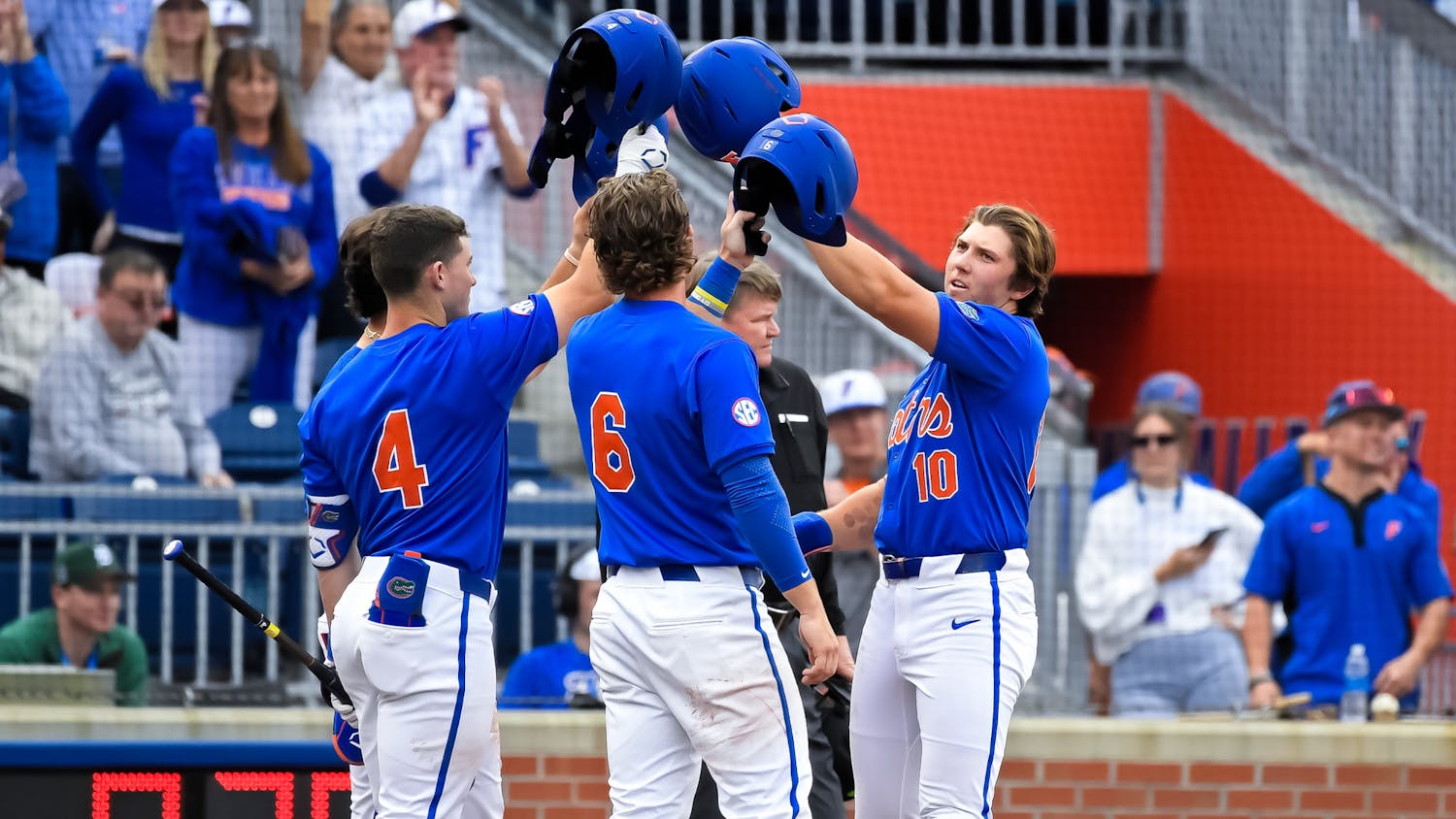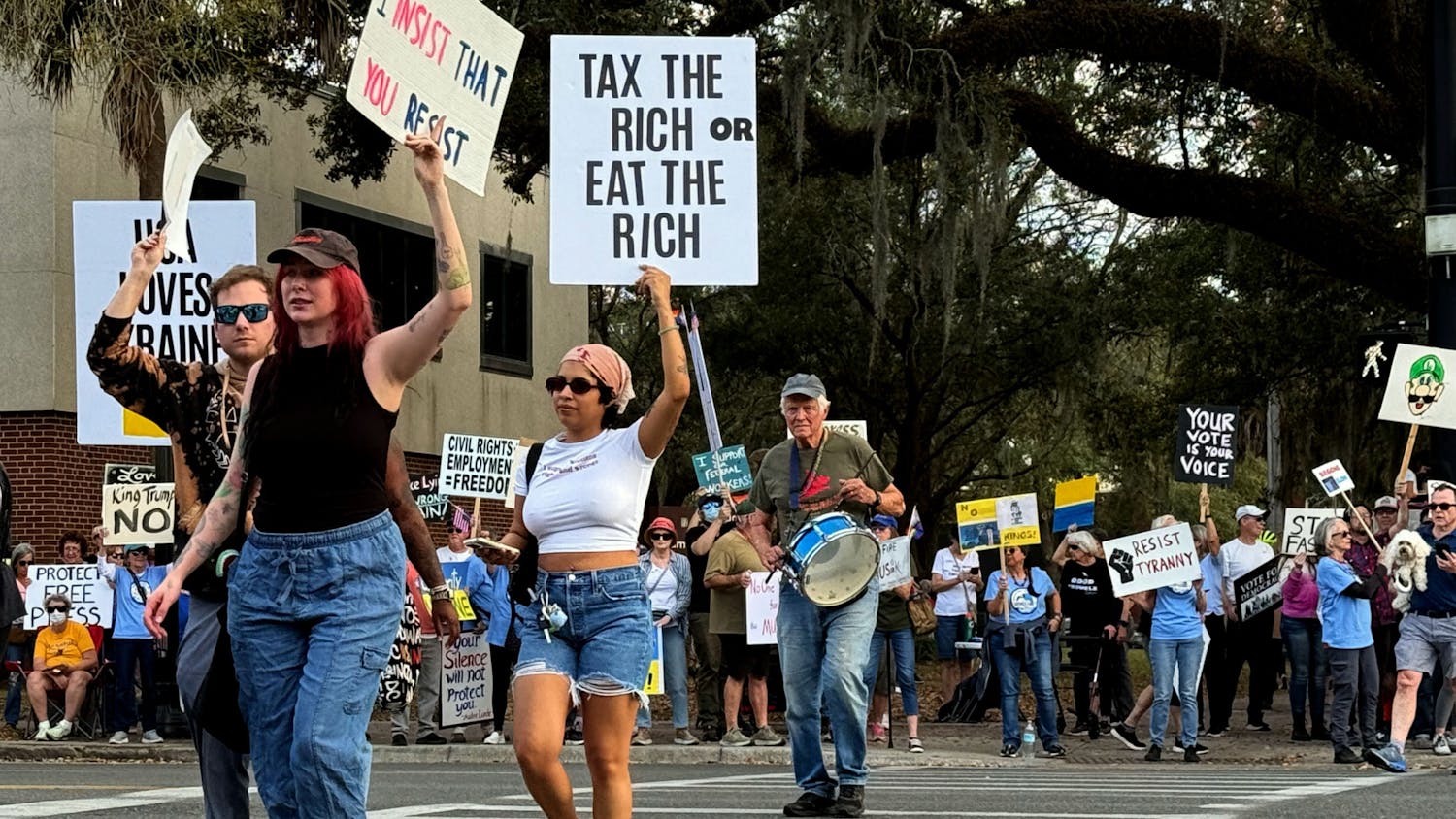The Pledge of Allegiance, a required and generally unquestioned routine in Florida schools, went under scrutiny earlier this month when the U.S. Supreme Court refused to consider a case challenging the Florida law.
The law requires public school students to say the Pledge of Allegiance unless their parents write a note excusing them.
The appeal was made by the American Civil Liberties Union of Florida on behalf of a high school student who was removed from his math class because he sat during the pledge.
"It's a frivolous lawsuit," said Daniel Boyd, Alachua County superintendent of schools. "Why should they waste any time overriding Florida's law, which requires that patriotism be stressed in our schools and that children participate in pledging allegiance to our country? I agree with the Supreme Court."
Boyd was principal of Gainesville High School for 24 years, some of which were during the Vietnam War. He said that even during that time of dissent, there were very few students who ever refused to say the pledge.
"My experience has been that students appreciated the traditions of the country," Boyd said. "We start our graduations and school board meetings and rotary and civic club meetings everywhere with a pledge to the flag. It's common respect to our heritage and an example of the pride we take in being Americans."
Boyd said he thinks if a local student with a note refused to say the pledge, the teacher would continue on with the rest of the class. However, he does not believe this is commonplace.
"I can't think of anybody over my whole career bringing a note from their parents asking them to be excused from this," he said.
Donna Kidwell, principal of Fort Clarke Middle School, has one such student.
"The child just sits during the pledge; it takes 20 seconds," said Kidwell, who had to explain to confused students what was going on.
"In their questioning, they were disrupting the whole pledge process. It was taking away from the moment," she said.
While she can't imagine not standing for the pledge, Kidwell thinks forcing it on students is counterproductive.
"Kids this age love to rebel and be different. Sometimes you have to work through those things," Kidwell said.
She said holding discussions, explaining feelings and educating students about the reasons for the pledge are the most important factors. She also said the rejection of the appeal won't change the way she deals with her students.
Boyd is more adamant in his views about the pledge.
"We are citizens of the United States, the greatest country in the world. It's a tradition that has been in place in our schools for probably 100 years. We need to continue it," he said. "Go America."





